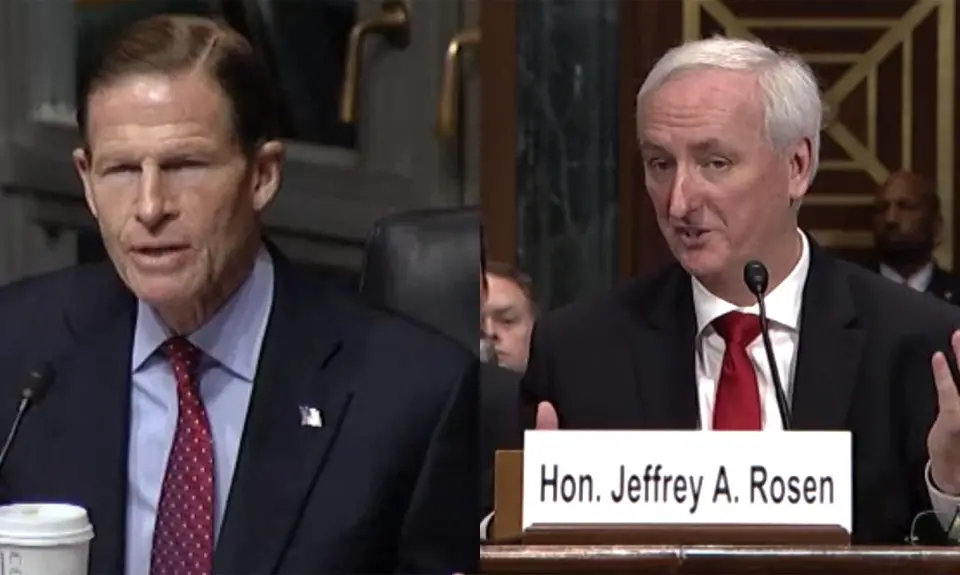When a nominee for a powerful position in the U.S. Justice Department refuses to support Brown v. Board of Education, his nomination should instantly become unviable. That is what would have happened in ordinary times, throughout the entire lifetimes of most people in the United States. But these are not ordinary times, Donald Trump is not an ordinary president, and the modern GOP no longer operates as an ordinary political party in a pluralistic democracy.
On April 10, Deputy Attorney General nominee Jeffrey Rosen had his nomination hearing before the Senate Judiciary Committee. If confirmed, he would be the second-in-command at the Justice Department, which we should be able to rely upon to protect our Constitution and our rights. DOJ has an enormous role to play in fighting against unconstitutional racial discrimination. Apparently, that is not on Rosen’s agenda. The Daily Beast reports on his exchange with Connecticut Sen. Richard Blumenthal:
“Was Brown v. Board of Education correctly decided?” Blumenthal asked.
“Senator, I don’t think that it would be a productive exercise for me to go through the most–thousands of Supreme Court opinions and say which ones are right and which ones are wrong,” he said.
“These are pretty simple questions,” Blumenthal said. “They’re answerable by yes or no. Most lawyers, I suspect, would agree based on knowledge of the law that these two cases, pillars of our jurisprudence, were correctly decided by the United States Supreme Court.”
“I, um, I have views about lots of Supreme Court cases,” Rosen said, “but I’m not being nominated for this position to be the Solicitor General nor a judge and I think in this context the point I’m trying to make is that, whatever the law is, whether it’s a decision I would favor or disfavor, I see it as the role of the Department of Justice to uphold the law such as it is, unless Congress or the courts change it.”
Americans have seen more and more Trump judicial nominees refuse to support Brown v. Board of Education, under a flimsy excuse that, even if valid, would apply only to the judicial branch. But this may be the first time we have ever seen a Justice Department nominee take this route. There is no conceivable reason for him not to answer. Senators need to be able to have basic information about a deputy AG nominee’s views of the law in order to determine if he merits confirmation. That’s what these hearings are all about.
Rosen’s view of precedent is important, because DOJ can and does urge the Supreme Court to overrule precedent, as we have seen several times during the Trump administration:
- In Janus v. AFSCME, DOJ urged the Court to overrule an important First Amendment precedent from 1977 protecting working people in the public sector. The United States was not a party, but chose to submit an amicus brief to make its position known.
- In South Dakota v. Wayfair, DOJ asked the Court to overrule Commerce Clause precedents from 1967 and 1992 that limited states’ ability to tax sales from companies not physically located in the state.
- In Kisor v. Wilkie (currently pending), DOJ has asked the Court to “cabin” precedents from 1945 and 1997 regarding agencies’ interpretations of their own rules.
- In State National Bank of Big Spring v. Mnuchin, DOJ argued that the Court should not hear the case. But if it did, and it interpreted the seminal case on independent agencies to apply to those with a single head, then the Court “should consider whether that case should be overruled in part or in whole.” (The Court did not take the case.)
So yes, it matters what a senior Justice Department nominee thinks about Supreme Court cases. If Jeffrey Rosen wants the Court to overrule or “cabin” Brown v. Board, we need to know about it. And if he won’t tell us, then senators cannot risk confirming him.
